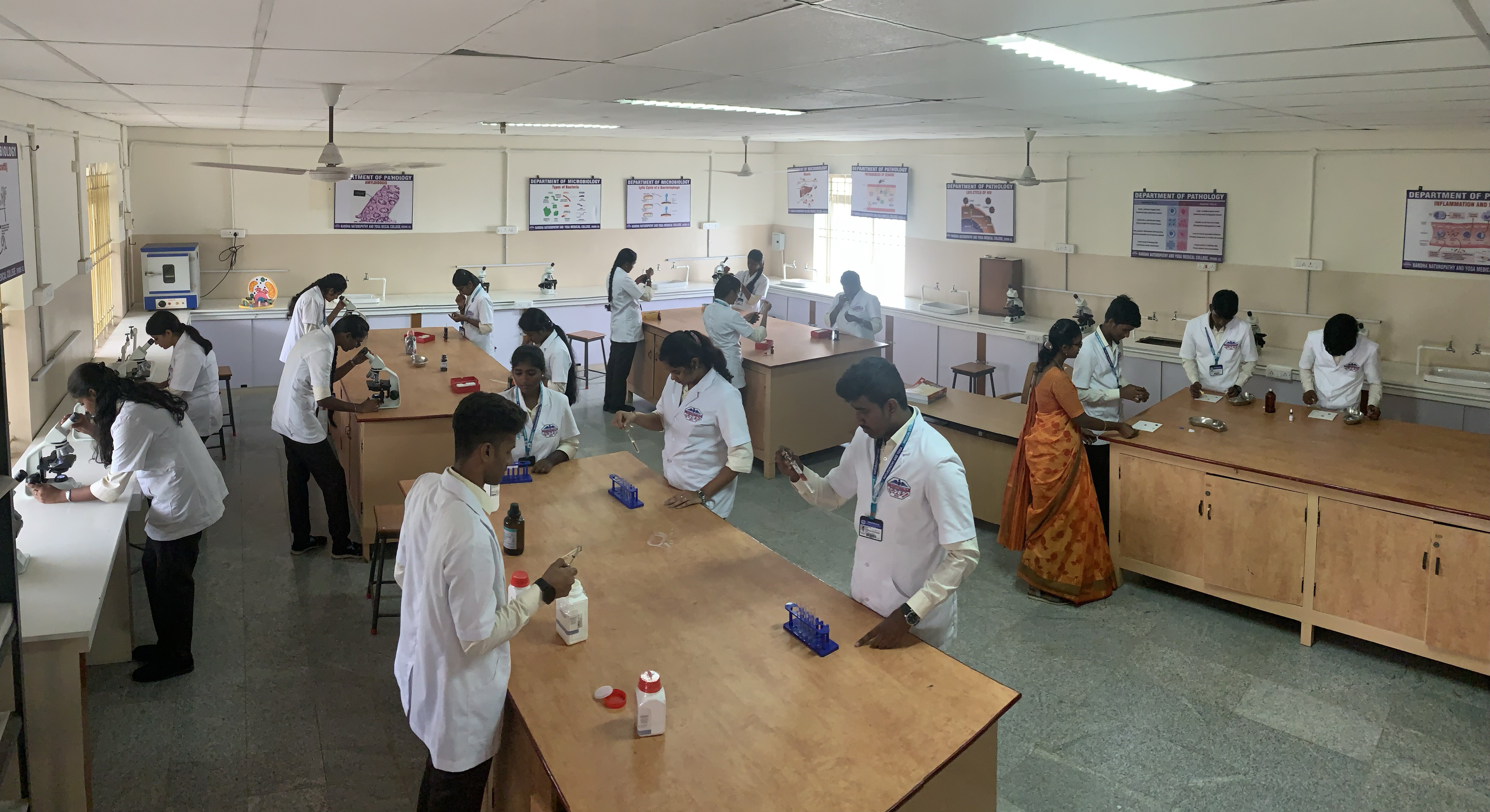- Details
- Written by Super User
- Category: PARA-CLINICAL Department
- Hits: 2563
COMMUNITY MEDICINE
Community medicine is a branch of medicine dealing with healthcare issues affecting communities as a whole.
Syllabus includes
• Evolution of Medicine.
• Concepts in Community Health.
• General Epidemiology.
• Genetics.
• Screening of Diseases.
• Epidemiology of communicable Diseases.
• Epidemiology of non-communicable diseases.
• Demography & Family planning.
• Preventive Medicine in Obstetrics Paediatrics & Geriatrics.
• Environmental Health & Occupational Health.
• Basic medical Statistics.
• Health Education and communication.
• Health planning – Management.
• Health Care of Community.
• Nutrition and Health.
• Personal Hygiene.
- Details
- Written by Super User
- Category: PARA-CLINICAL Department
- Hits: 3250
DEPARTMENT OF PATHOLOGY
Pathology is the study and diagnosis of disease through examination of organs, tissues, bodily fluids, and whole bodies (autopsies). Pathology also encompasses the related scientific study of disease processes, called general pathology. Medical pathology is divided into two main branches, anatomical pathology and clinical Pathology. Pathologists work with other doctors, medical specialty societies, medical laboratory professionals, and health care consumer organizations to set guidelines and standards for medical laboratory testing that help improve a patient's medical care and guide treatment.
Course objectives:
- To become familiar with pathology nomenclature. By the end of the course, the students are expected to be able to communicate an understanding of tissue injury and diseases processes, using appropriate vocabulary.
- To recognize morphological and functional differences between normal and injured or diseased tissue. The first goal of the course is to learn to discriminate pathological lesions from normal tissue. The second goal is to comprehend a structural, functional and biochemical perspective, the different types of pathological lesions, and provide scenarios for how they arise.
- To integrate pathological findings with clinical manifestations of disease. As this course is designed for graduate students training for the medical field, the students are expected to develop an understanding of the clinical features for certain disease processes. These features may impact on detection, treatment or outcome of the disease or injury.
- To integrate the principles and information presented in this course with that from related disciplines. Material presented in the course is expected to contribute to the body of knowledge which students will carry with them into a research career. This should be a “working” body of knowledge which the student can apply, in a problem solving manner, to understand mechanisms of disease.
- In working towards a current understanding of the pathologic basis of disease, the student should develop a sense of which questions in pathology remain to be resolved.











